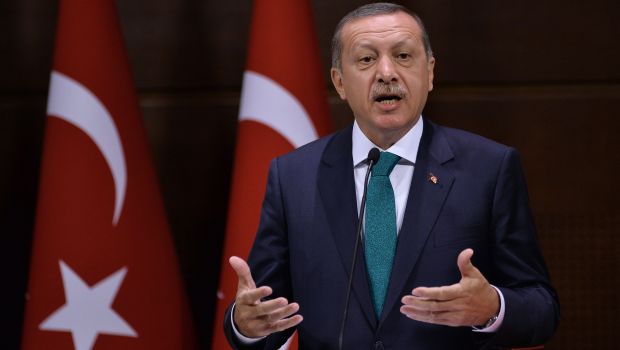We do not know if David Ignatius has been waiting patiently for over four years to avenge himself on Recep Tayyip Erdoğan who walked off in anger from a panel that he was hosting at Davos in 2009. However, what we do know is that the famous US writer, and one of the most significant monitors of US intelligence secrets, has now sparked off a diplomatic crisis between Ankara and Tel Aviv, with Washington seeking to defuse this ticking time bomb.
In an op-ed published in the Washington Post, Ignatius quoted anonymous sources as saying that Turkish Intelligence Chief Hakan Fidan had disclosed the identities of ten Iranians who had been meeting with Mossad in Turkey to Iranian intelligence. Ignatius’s article, which was an extension of a long analysis published in The Wall Street Journal about changes in Turkey’s policy towards Syria and Ankara’s attempt to play the extremist group card, would have been the final straw for Israel if Washington had not intervened at the last minute by announcing its commitment to its Turkish ally and partner.
What did Fidan do to anger the Israelis so much?
Fidan has followed Erdoğan’s instructions to the letter, both inside and outside Turkey. Fidan has announced that Turkey is no longer open for Mossad. He has refused to allow Turkey to serve as a convenient meeting point for Mossad agents, instead expanding cooperation with and deployment of the Turkish National Intelligence Organization (MIT) in several regional and European capitals. Fidan, based on Erdogan’s instructions, has expanded cooperation with Iran on the ground, insisting that Ankara will not sever its ties with Tehran, while also preventing the mobilization of agents who could attempt to assassinate Iranian scientists while on Turkish soil. In brief, Fidan’s action echo the general atmosphere in Turkey, particularly the Erdoğan government’s mistrust of the Israeli political leadership, which takes advantage of every opportunity open to it to besiege and strategically weaken Turkey.
Fidan is no less stubborn than his Prime Minister, who angered the Israelis on several occasions and was the main obstacle to Israel’s frequent calls to turning over a new leaf in relations between Ankara and Tel Aviv. This is despite the chief of Mossad Tamir Pardo’s overtures, visiting the Turkish capital in June; however he ultimately failed to convince Fidan to get him a meeting with Erdoğan.
What angered Tel Aviv was not MIT revealing that spy networks were operating on Turkish soil without Ankara’s permission, but rather Turkey specifically targeting these spies and blocking their movements and communications, as well as disclosing their identities to Tehran, perhaps facilitating their capture. What angered Tel Aviv was Ankara’s interference in sensitive and strategic Israeli affairs.
Three years ago, Barack Obama warned of the danger represented by Fidan’s appointment, particularly to his distinguished relations with Tehran; while the Israeli media initiated calls for Washington and Tel Aviv to reconsider their ties with Ankara. In fact, some hard-line Israelis have said that Fidan should wake up one day to find a nasty surprise waiting for him in his car as a result of what they dub his “grand treason,” not to mention the broad network of relations he has built with Lebanon’s most senior security figures. Fidan had been an important player in the shadows, providing services and intelligence that ultimately surprised and confused Israeli calculations on the Lebanese scene.
The Turks reiterate: Why should Ankara open its doors for Mossad agents to wander freely in Anatolia, recruiting spies and mobilizing agents?
One possibility that has been repeated is that Washington itself leaked this information to Ignatius to drive home the message to Tel Aviv that it is committed to changing the rules of the game and that the Israelis should let Washington seek rapprochement with the new Iranian leadership. This is something that would allow Washington to achieve progress on a number of important files, including Iran’s nuclear program, the Syrian crisis, and Russian-Iranian rapprochement.
Washington is attempting to drag everyone to its own side and force them to listen to what it says due to its waning influence and the setbacks it suffered in the region over the past two years. Erdoğan and his Justice and Development Party-led government have recently said that Fidan is their “black box” and they will not let anyone uproot him.
Will Washington allow Tel Aviv to continue making threats particularly when the picture is becoming increasingly clear and everyone realizes that this US-Iran rapprochement has taken place on Turkey’s recommendation? How will Tel Aviv withstand a second shock of this proportion from Fidan who led the top-secret “Operation Storm” within Syria to secure the transfer of the Lebanese hostages to Istanbul and then to Beirut?
